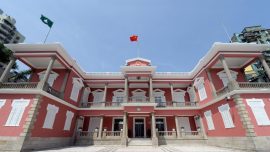Lisbon, 17 Jul 2019 (Lusa) – The Director-General of the Food and Agriculture Organization of the United Nations (FAO) today said that Portugal and Brazil should “help more” the Portuguese-speaking community in fulfilling the agreement signed between the organizations in 2014.
“Countries are not able to move faster on their own, they are poor countries … and because of the number of times government is exchanged in these countries, we realize that they are facing systemic crises,” said José Graziano da Silva, , adding that “part of this systemic crisis is the lack of available resources”.
“Then these countries need help. Portugal and Brazil need to help the CPLP more.”
The statements of José Graziano da Silva came in the context of a review of the Technical Cooperation Program (PCT) between FAO and the CPLP, signed in 2014.
The Director-General of FAO believes that the PCT has “moved more slowly” than expected, but that the transformation of the UN agency’s office into a “Portuguese office and support to the CPLP” is a “great contribution” to having “conditions to walk faster”.
The agreement signed in March 2014 between FAO and CPLP aimed at training agricultural producers from Lusophone African countries and Timor-Leste for food and nutritional security.
At the time, the then CPLP Executive Secretary Murade Murargy explained that the aim was to “train countries and institutions on agricultural production” and FAO would contribute $ 500,000 ($ 445,300 at current exchange rate).
José Graziano da Silva, whose mandate at the helm of FAO last year, also addressed the climatic disasters in Portuguese-speaking countries, particularly the drought in southern Angola and cyclones in Mozambique.
“This drought in Angola is recurrent, it is not the first year, and the same is happening with the cyclone in Mozambique. It has been repeated in the last three to four years,” he said.
“The major guideline of our work, as well as coming to us when climatic disasters occur, is to promote the resilience of populations, the capacity to withstand this impact, because unfortunately this is the new reality. lamented the FAO official.
In this sense, Graziano da Silva explained that FAO’s work has been directed towards the substitution of crops “more resistant to drought”, such as crops. Already in Mozambique, the official indicated the “perennial crops, which can withstand these floods” as an alternative.
José Graziano da Silva spoke to journalists in Lisbon, on the sidelines of a protocol of cooperation between the United Nations agency and the Open University (UAB).
This partnership will bring FAO technicians to classes, lectures and conferences of the Master of Science of Food Consumption of the UAB and will allow the integration of traineeships of students in the United Nations.
Through the partnership, the two institutions intend to strengthen cooperation and exchange relationships in the area of training.
“I think it is a privilege to be able to work on this joint program, which will then be a model of action with the involvement of FAO specialists … in particular with the Master of Science in Food Consumption, as well as allowing our students a much closer contact … leading them to have an intense participation and even be a means of supporting FAO policies in the various territories, “said the UAB’s rector, Paulo Silva Dias, after the signing of the agreement cooperation.
JYO // JH
Lusa / End





















